To most motorists, one engine oil is the same as the next and as long as it meets an international standard like the one established by the American Petroleum Institute (API), it is good enough for use in virtually any engine.
This may be true in the general sense but each engine design is a bit unique; there may be special combustion chamber designs, fuel-injection, sophisticated valvetrains, and so on. Besides providing the necessary lubrication to minimize friction, the engine oil must also prevent metal-to-metal contact which can wear out the engine parts.
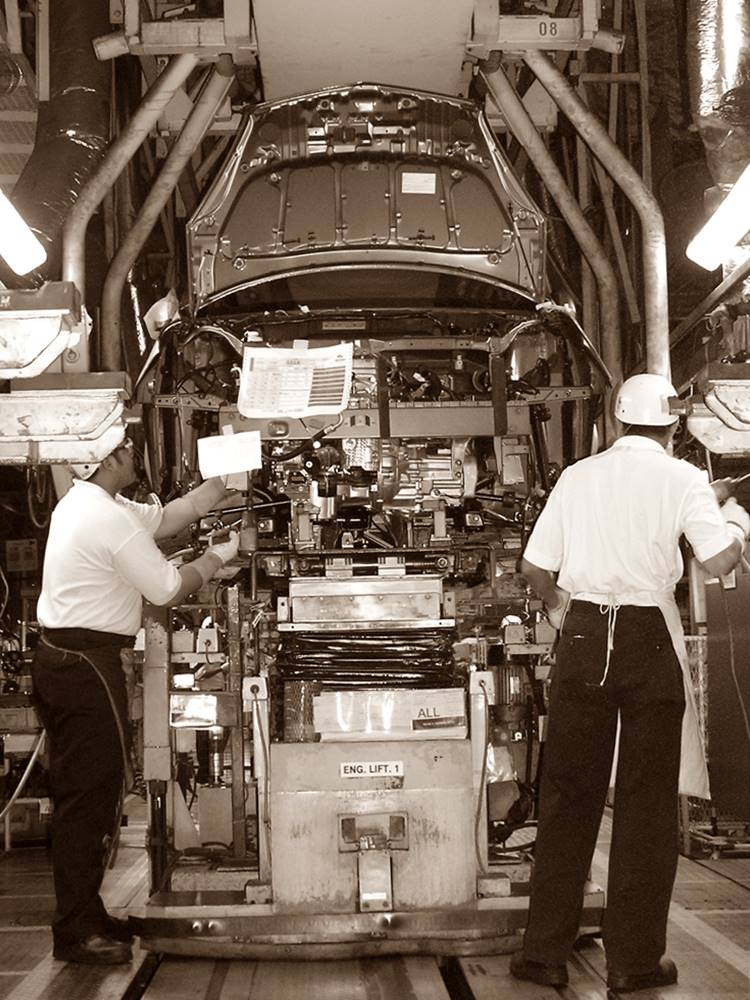
You’ll find engine oils from the reputable brands like BHPetrol, Shell, Petronas, Caltex, etc as well as well known specialists like Castrol, Pennzoil and TotalEnergies. Then there are also the ‘Genuine Oils’ which carry the brands of car manufacturers. Typically available only at the service centres of the companies, such oils are said to be specifically formulated and are the best oils for the engines of those companies’ vehicles.
The claims are not entirely untrue because the specifications for these Genuine Oils are prepared by the same people who designed the engines, so they know exactly what is needed to get the highest performance possible.
![Perodua Axia engine [2014]](https://www.motaauto.com/wp-content/uploads/2024/01/Perodua-Axia-engine-2014-1024x736.jpg)
M-TEC engine oil
Perodua has its own range of Genuine Oils which goes back to its very first model, the Kancil. However, back then, the carmaker did not use the term ‘Genuine Oil’ and used the brand name of M-TEC (for Malaysian TEChnology).
The formulation of M-TEC engine oil was specially developed in collaboration with Castrol Malaysia. Normally, at least 4 months or more would be needed to formulate an oil to meet requirements. But time was short and Castrol Malaysia took up the challenge and was able to produce a new engine oil for Perodua within 3 weeks!
It was important to have a more ‘customised’ oil because Perodua engines are typically small and have 3 cylinders. Because of this, the specification has a unique requirement of being magnesium-free. Magnesium is normally used as an additive which has detergency functions but the magnesium turns into ash during combustion and this deposits itself on piston rings. The deposits affect performance negatively and thus the engine would not be able to run at its best, especially when it comes to fuel economy. This is because friction levels would be higher, impacting efficiency.
![Perodua 3-cylinder engine [2015]](https://www.motaauto.com/wp-content/uploads/2024/01/Perodua-3-cylinder-engine-2015-945x1024.jpg)
Upgrading the oil and a new name
The original supply contract with Castrol Malaysia was for 8 years and in 2002, Perodua introduced its Genuine Oil under its own name. By then, a new generation of engines (such as the DOHC 16-valve EFI powerplants in the Kenari and Kelisa) had appeared so engine oil requirements had also to be upgraded.
![Perodua Genuine Oil [2003]](https://www.motaauto.com/wp-content/uploads/2024/01/Perodua-Genuine-Oil-2003-1024x768.jpg)
As Daihatsu, Perodua’s shareholder and technical partner, was the one that had originally developed the engines, it was only natural that it would be consulted on what specific requirements were necessary. Like other carmakers, Daihatsu also has its own test standards which suppliers must meet.
The tough standard then was the DTS K1500G standard specifically designed for smaller engines such as the 3-cylinder engines used by Perodua. While the API standard is respected and used generally, the Daihatsu standard was of more importance because of the emphasis on performance in small engines.
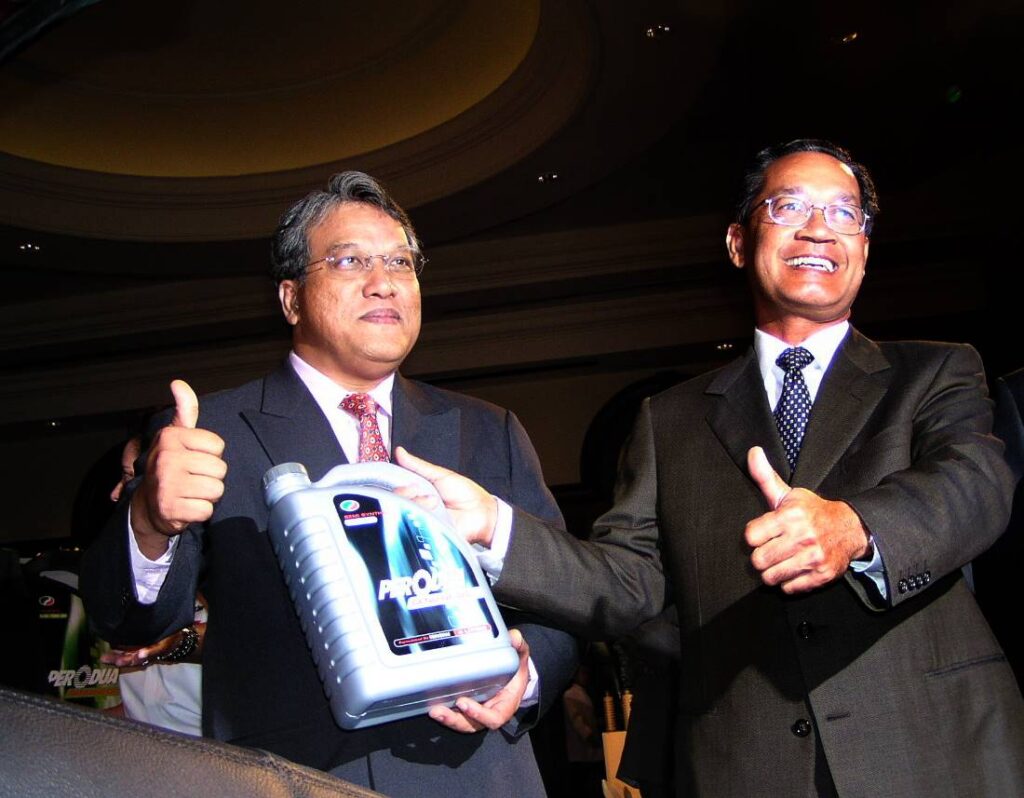
With its long experience in engine oil development, Petronas was able to quickly come up with the right formulation that passed the test and was thus approved to be Perodua Genuine Oil (PGO). It was initially available in semi-synthetic and mineral blends.
The other features of PGO are typical of any high-quality engine oil with oxidation stability at high operating temperatures, seal compatibility and low phosphorus content being crucial. An advanced additive package offers good sludge and deposit control so that the engine stays cleaner longer and oil filter clogging is prevented. It also resists high temperature breakdown, oil thickening, corrosion and rust, thus extending oil service life.
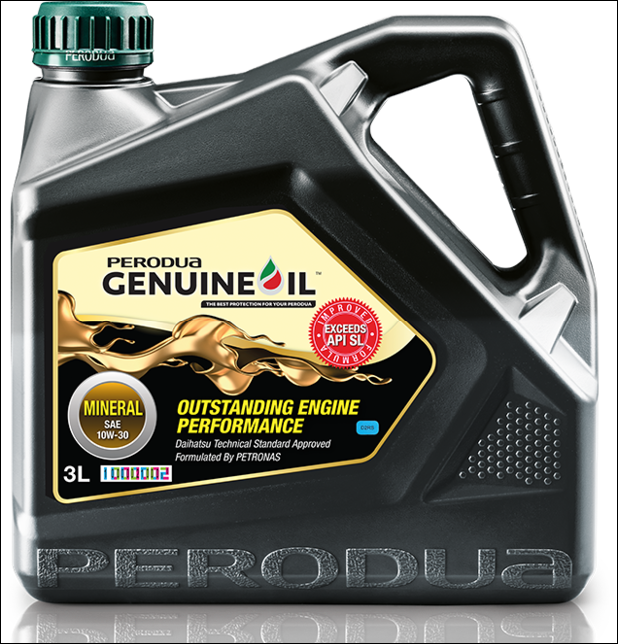
Additives unnecessary for PGO
The formulation of PGO is so unique that it is not necessary to use additives to ‘boost performance’. In fact, with most high-quality oils, the formulation is a carefully-balanced ‘recipe’ and an additive may upset it and negatively affect performance. It is possible that some additives may contain magnesium, the very thing that is kept out of PGO.
Good fluidity is important for fast oil circulation, especially in cold starts and quicker acceleration and better fuel economy (less ‘drag’ from the oil), so the viscosities for PGO have been carefully chosen to ensure this.
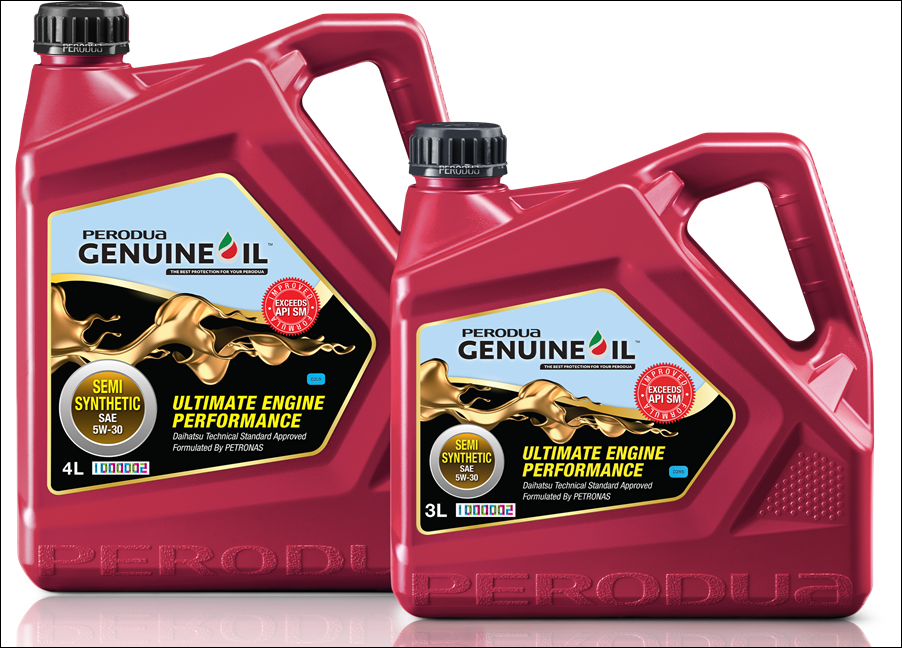
Over the years, PGO has been improved to match the advancements in Perodua engine, especially those in the latest Energy Efficient Vehicles (EEVs). A fully synthetic option is also available today and has a recommended oil change interval of 10,000 kms or maximum of 6 months (same for the semi-synthetic oil). PGO can be purchased at authorized service centres as well as selected parts stockists nationwide.
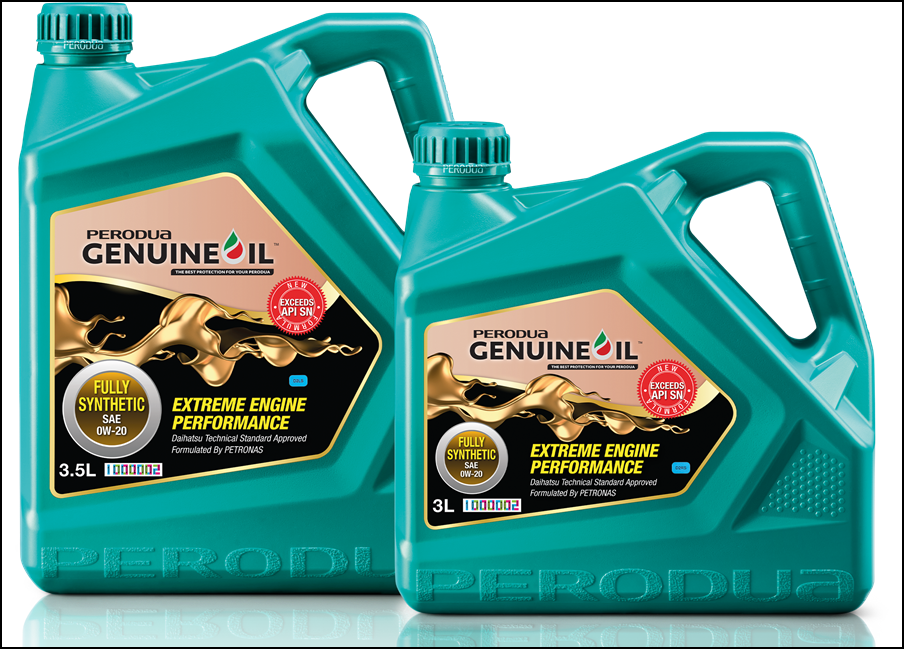
Obviously, every new vehicle leaving the factory comes with PGO and authorized service centres will also provide it whenever the oil change is made. You could use other oil brands (after the warranty has ended) but why not use the one oil which is formulated specifically for Perodua engines so you can always get the best performance?
Click here to know more about Perodua Genuine Oil and where to buy it.
Find a nice numberplate at Motor Trader Malaysia
![Perodua Genuine Oil [2024] Perodua Genuine Oil [2024]](https://www.motaauto.com/wp-content/uploads/2024/01/Perodua-Genuine-Oil-2024-696x295.png)
